South Auckland > GPs / Accident & Urgent Medical Care > ProCare >
Botany Medical and Urgent Care
Accident & Urgent Medical Care (A&E) Service, General Practice (GP)
Opening hours 8.00-5.00 Monday -Friday , Saturday 9.00 am -4.00 pm
Today
8:00 AM to 5:00 PM.
Description
We offer a family friendly GP , located in Botany town centre, our clinic welcomes new patients . We are passionate about delivering excellent affordable health care and an extraordinary patient experience.
Our facility is well supported by our nursing staff and treatment room facilities.
We offer comprehensive family and individual services including pre-employment assessments, travel vaccinations, childhood immunisations, skin cancer checks, sexual health checks , women's health and pap smears.
At BMUC Clinic we believe in providing access to excellent healthcare for everyone and share the vision of a truly patient centered service, offering patients choice and the best possible level of care.
Staff
We would like to welcome Dr Michael Phillips to our team
Consultants
-

Dr Nidal Nahar
General Paediatrician - Vocationally Registered
Doctors
-
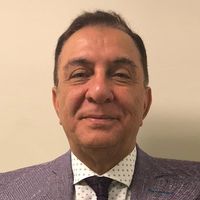
Dr Qusai Ali
General Practitioner - Vocationally Registered
-

Dr Nagham Hawa
General Practitioner -Vocational Registration
-
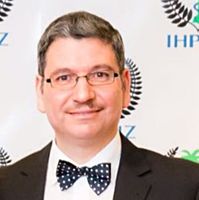
Dr Salam Salih
General Practitioner - Vocationally Registered
-
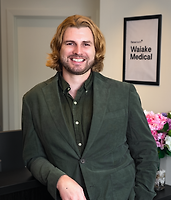
Dr Michael Howlett
General Practitioner
-
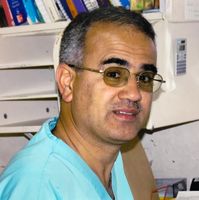
Dr Hilal Wahid
Rural Hospital Medicine - Vocationally Registered
-
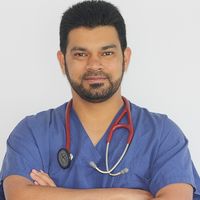
Dr Imran Zia
General Practitioner
How do I access this service?
Anyone can access, Make an appointment, Walk in, Enrolled patients, Casual (not enrolled) patients
Enrolling new patients
Fees
Enrolled Patient Fees
| Age Range | Without CSC | With CSC |
|---|---|---|
| Under 6 years | Free | Free |
| 6 to 13 years | Free | Free |
| 14 to 17 years | $40.00 | $13.50 |
| 18 to 24 years | $40.00 | $19.50 |
| 25 to 44 years | $40.00 | $19.50 |
| 45 to 64 years | $40.00 | $19.50 |
| 65+ years | $40.00 | $19.50 |
| MEDICAL VISITS - ENROLLED PATIENTS | |||||
| Under 14 Years | 14-17 Years (With CSC/HUC) |
14-17 Years (Without CSC) |
18+ (With CSC/HUC) |
18+ (Without CSC) |
|
| Monday - Friday | FREE | $13.50 | $40 | $19.50 | $40 |
| Weekends & Public Holidays | $40 | $60 | $50 | $60 | |
| MEDICAL VISITS - CASUAL PATIENTS |
|||||||
| Under 6 Years |
6-13 Years |
6-13 Years (Without CSC) |
14-17 Years (With CSC/HUC) |
14-17 Years (Without CSC) |
18+ (With CSC/HUC) |
18+ (Without CSC) |
|
| Monday - Friday | $20 | $40 | $60 | $60 | $60 | $80 | $100 |
| Weekends & Public Holidays | $40 | $50 | $70 | $70 | $70 | $100 | $120 |
| VISITOR VISA & WORK VISA LESS THAN 2 YEARS - NON RESIDENTS |
|||||||
| Under 18 Years | Over 18 Years | ||||||
| Monday - Sunday |
$120 | $170 | |||||
| ACC VISITS | |||||
| REGISTERED PATIENTS - ACC SURCHARGE | |||||
| Under 14 Years | 14-17 Years (With CSC/HUC) |
14-17 Years (Without CSC) |
18+ (With CSC/HUC) |
18+ (Without CSC) |
|
| Monday - Friday | FREE | $13 | $30 | $19.50 | $40 |
| Weekends & Public Holidays | $50 | $50 | |||
| CASUAL PATIENTS - ACC SURCHARGE | |||||
| Under 14 Years | 14 Years & Over (With CSC/HUC) |
14 Years & Over (Without CSC) |
|||
| Monday - Friday | FREE | $40 | $50 | ||
| Weekends & Public Holidays | $50 | $60 | |||
| VISITOR VISA & WORK VISA LESS THAN 2 YEARS - NON RESIDENTS | |||||
| ACC SURCHARGE FOR ALL AGES | |||||
| Monday - Sunday & Public Holidays | $80 | ||||
| ACC FOLLOW UP | $10 FOR ALL 14 YEARS AND OVER | ||||
Hours
8:00 AM to 5:00 PM.
| Mon – Fri | 8:00 AM – 5:00 PM |
|---|---|
| Sat | 9:00 AM – 4:00 PM |
Public Holidays: Closed Waitangi Day (6 Feb), Good Friday (3 Apr), Easter Sunday (5 Apr), Easter Monday (6 Apr), ANZAC Day (observed) (27 Apr), King's Birthday (1 Jun), Matariki (10 Jul), Labour Day (26 Oct), Auckland Anniversary (1 Feb).
Preferred urgent care clinic out of hours: East Care Urgent Care.
Services Provided
Your GP's surgery is far more than a place to go when you are feeling unwell and needing a quick cure. The doctor who sees you has gone through an extensive medical training to equip her or him to help children and adults of all ages with a range of physical and emotional difficulties. GPs are at the centre of the healthcare hub and will be aware of services and expertise that are available locally and further-a-field. GPs are also aware of the link that stress and unhappy life events have on physical health so know when to suggest a talking therapy rather than medication.
Your GP's surgery is far more than a place to go when you are feeling unwell and needing a quick cure. The doctor who sees you has gone through an extensive medical training to equip her or him to help children and adults of all ages with a range of physical and emotional difficulties. GPs are at the centre of the healthcare hub and will be aware of services and expertise that are available locally and further-a-field. GPs are also aware of the link that stress and unhappy life events have on physical health so know when to suggest a talking therapy rather than medication.
Your GP's surgery is far more than a place to go when you are feeling unwell and needing a quick cure. The doctor who sees you has gone through an extensive medical training to equip her or him to help children and adults of all ages with a range of physical and emotional difficulties. GPs are at the centre of the healthcare hub and will be aware of services and expertise that are available locally and further-a-field. GPs are also aware of the link that stress and unhappy life events have on physical health so know when to suggest a talking therapy rather than medication.
Health screening tests check for health conditions or early warning signs of disease.
Health screening tests check for health conditions or early warning signs of disease.
- Cervical screening
Health screening tests check for health conditions or early warning signs of disease.
Primary care practices offer a range of services and are able to deal with most minor accident care. If they are not able to deal with an injury they will refer on to the appropriate service.
Primary care practices offer a range of services and are able to deal with most minor accident care. If they are not able to deal with an injury they will refer on to the appropriate service.
Primary care practices offer a range of services and are able to deal with most minor accident care. If they are not able to deal with an injury they will refer on to the appropriate service.
Minor surgery is commonly provided in primary care practices, providing fast, competent removal and biopsies of skin lesions. Other services include cosmetic work such as removal of benign moles and skin tags. Ingrown toenail surgery is also commonly provided. These conditions do not need to be referred to a hospital, perhaps saving you a long wait or a cancelled appointment when a more serious case takes priority.
Minor surgery is commonly provided in primary care practices, providing fast, competent removal and biopsies of skin lesions. Other services include cosmetic work such as removal of benign moles and skin tags. Ingrown toenail surgery is also commonly provided. These conditions do not need to be referred to a hospital, perhaps saving you a long wait or a cancelled appointment when a more serious case takes priority.
Minor surgery is commonly provided in primary care practices, providing fast, competent removal and biopsies of skin lesions. Other services include cosmetic work such as removal of benign moles and skin tags. Ingrown toenail surgery is also commonly provided.
These conditions do not need to be referred to a hospital, perhaps saving you a long wait or a cancelled appointment when a more serious case takes priority.
Immunisation is the safest and most effective way to provide protection for you and your tamariki’s health. For more information view the NZ immunisation schedule.
Immunisation is the safest and most effective way to provide protection for you and your tamariki’s health. For more information view the NZ immunisation schedule.
- Pregnancy vaccinations
- Childhood immunisation programme
- 45 year old vaccinations
- 65 year old vaccinations
- Adult flu vaccine
- Child flu vaccine
- Shingles vaccine
- Meningococcal vaccine
- Measles / Mumps / Rubella (MMR) vaccine
- Human Papillomavirus (HPV) vaccine
- Diphtheria / Tetanus / Pertussis (whooping cough) vaccine
- COVID-19 vaccination and boosters
Immunisation is the safest and most effective way to provide protection for you and your tamariki’s health. For more information view the NZ immunisation schedule.
Liquid nitrogen is a fast, effective treatment provided in many practices to treat viral warts, sun damaged skin, skin tags and many benign cosmetic lesions. It comes in a container with a nozzle and is usually applied by swab or spray. Often one treatment is all that is needed but sometimes it may need repeating after two weeks. Because it cannot be stored for too long, you will often find that your GP will treat a number of patients one after the other. For more information click here.
Liquid nitrogen is a fast, effective treatment provided in many practices to treat viral warts, sun damaged skin, skin tags and many benign cosmetic lesions. It comes in a container with a nozzle and is usually applied by swab or spray. Often one treatment is all that is needed but sometimes it may need repeating after two weeks. Because it cannot be stored for too long, you will often find that your GP will treat a number of patients one after the other. For more information click here.
Liquid nitrogen is a fast, effective treatment provided in many practices to treat viral warts, sun damaged skin, skin tags and many benign cosmetic lesions. It comes in a container with a nozzle and is usually applied by swab or spray. Often one treatment is all that is needed but sometimes it may need repeating after two weeks.
Because it cannot be stored for too long, you will often find that your GP will treat a number of patients one after the other.
For more information click here.
All women and people with a cervix aged 25 – 69 who have ever had intimate skin-to-skin contact or been sexually active should have regular cervical screening. This includes women who have been immunised against HPV. Together, regular screening and HPV immunisation provide the best protection against cervical cancer. There are now more options for how you have cervical screening done: a simple vaginal swab test for HPV, either done yourself or with help from a healthcare professional a cervical sample taken by a healthcare professional (used to be known as a smear test). Talk with your healthcare provider to decide which option is best for you. If HPV is found, you may need to have a follow-up test or be referred directly for colposcopy. If you’ve not yet had HPV testing, you should be screened 3 years after your last test (or 1 year if immune deficient). Once you have had an HPV test, and providing HPV is not found, your next screening will be in 5 years (or 3 years if immune deficient). For more information: Cervical screening | Time to Screen - National Screening Unit
All women and people with a cervix aged 25 – 69 who have ever had intimate skin-to-skin contact or been sexually active should have regular cervical screening. This includes women who have been immunised against HPV. Together, regular screening and HPV immunisation provide the best protection against cervical cancer. There are now more options for how you have cervical screening done: a simple vaginal swab test for HPV, either done yourself or with help from a healthcare professional a cervical sample taken by a healthcare professional (used to be known as a smear test). Talk with your healthcare provider to decide which option is best for you. If HPV is found, you may need to have a follow-up test or be referred directly for colposcopy. If you’ve not yet had HPV testing, you should be screened 3 years after your last test (or 1 year if immune deficient). Once you have had an HPV test, and providing HPV is not found, your next screening will be in 5 years (or 3 years if immune deficient). For more information: Cervical screening | Time to Screen - National Screening Unit
All women and people with a cervix aged 25 – 69 who have ever had intimate skin-to-skin contact or been sexually active should have regular cervical screening. This includes women who have been immunised against HPV. Together, regular screening and HPV immunisation provide the best protection against cervical cancer.
There are now more options for how you have cervical screening done:
- a simple vaginal swab test for HPV, either done yourself or with help from a healthcare professional
- a cervical sample taken by a healthcare professional (used to be known as a smear test).
Talk with your healthcare provider to decide which option is best for you.
If HPV is found, you may need to have a follow-up test or be referred directly for colposcopy.
If you’ve not yet had HPV testing, you should be screened 3 years after your last test (or 1 year if immune deficient). Once you have had an HPV test, and providing HPV is not found, your next screening will be in 5 years (or 3 years if immune deficient).
For more information: Cervical screening | Time to Screen - National Screening Unit
An ECG is a recording of your heart's electrical activity. Electrode patches are attached to your skin to measure the electrical impulses given off by your heart. The result is a trace that can be read by a doctor. It can give information of previous heart attacks or problems with the heart rhythm.
An ECG is a recording of your heart's electrical activity. Electrode patches are attached to your skin to measure the electrical impulses given off by your heart. The result is a trace that can be read by a doctor. It can give information of previous heart attacks or problems with the heart rhythm.
An ECG is a recording of your heart's electrical activity. Electrode patches are attached to your skin to measure the electrical impulses given off by your heart. The result is a trace that can be read by a doctor. It can give information of previous heart attacks or problems with the heart rhythm.
All New Zealand children are entitled to 11 free health checks from birth to three years. The checks aim to ensure that children are growing and developing as well as possible. Included in the checks are clinical assessment, health education and family/whanau support. Baby checks are at birth and then at 24 hours, five days and around 2-4 weeks. Babies are weighed and measured to ensure that they are developing correctly. These sessions provide a great opportunity for parents to ask questions from an expert and have any problem addressed; difficulties with breastfeeding or sleep for example. They can also be used to discuss immunisations and vaccinations. These checks will be carried out by your lead maternity carer (LMC). Between the ages of 4-6 weeks and three years, there are seven core health checks available, typically these are around 4-6 weeks, 8-10 weeks, 3-4 months, 5-7 months, 9-12 months, 15-18 months and 2-3 years. These checks may be carried out by a Well Child Provider of your choice e.g. Plunket, Maori health provider, community nurse, a general practice team (doctor and practice nurse). Your LMC will be able to give you a list of Well Child Providers in your area. More information about Well Child services is available on the Ministry of Health website.
All New Zealand children are entitled to 11 free health checks from birth to three years. The checks aim to ensure that children are growing and developing as well as possible. Included in the checks are clinical assessment, health education and family/whanau support. Baby checks are at birth and then at 24 hours, five days and around 2-4 weeks. Babies are weighed and measured to ensure that they are developing correctly. These sessions provide a great opportunity for parents to ask questions from an expert and have any problem addressed; difficulties with breastfeeding or sleep for example. They can also be used to discuss immunisations and vaccinations. These checks will be carried out by your lead maternity carer (LMC). Between the ages of 4-6 weeks and three years, there are seven core health checks available, typically these are around 4-6 weeks, 8-10 weeks, 3-4 months, 5-7 months, 9-12 months, 15-18 months and 2-3 years. These checks may be carried out by a Well Child Provider of your choice e.g. Plunket, Maori health provider, community nurse, a general practice team (doctor and practice nurse). Your LMC will be able to give you a list of Well Child Providers in your area. More information about Well Child services is available on the Ministry of Health website.
All New Zealand children are entitled to 11 free health checks from birth to three years. The checks aim to ensure that children are growing and developing as well as possible. Included in the checks are clinical assessment, health education and family/whānau support.
Baby checks are at birth and then at 24 hours, five days and around 2-4 weeks. Babies are weighed and measured to ensure that they are developing correctly. These sessions provide a great opportunity for parents to ask questions from an expert and have any problem addressed; difficulties with breastfeeding or sleep for example. They can also be used to discuss immunisations and vaccinations. These checks will be carried out by your lead maternity carer (LMC).
Between the ages of 4-6 weeks and three years, there are seven core health checks available, typically these are around 4-6 weeks, 8-10 weeks, 3-4 months, 5-7 months, 9-12 months, 15-18 months and 2-3 years. These checks may be carried out by a Well Child Provider of your choice e.g. Plunket, Māori health provider, community nurse, a general practice team (doctor and practice nurse). Your LMC will be able to give you a list of Well Child Providers in your area.
More information about Well Child services is available on the Ministry of Health website.
Document Downloads
- Patient Information And Enrollment Form (PDF, 569.7 KB)
- Patient Notes Request Form (PDF, 84.2 KB)
Website
Contact Details
2 Market Square, East Tāmaki, Auckland
South Auckland
8:00 AM to 5:00 PM.
-
Phone
(09) 280 1790
-
Fax
(09) 280 1799
Healthlink EDI
botanyuc
Email
Website
Botany Town Centre (Next to New World)
2 Market Square
East Tamaki
Auckland 2013
Street Address
Botany Town Centre (Next to New World)
2 Market Square
East Tāmaki
Auckland 2013
Would you recommend this service to family & friends?
See ReviewsWas this page helpful?
This page was last updated at 2:32PM on December 19, 2025. This information is reviewed and edited by Botany Medical and Urgent Care.

